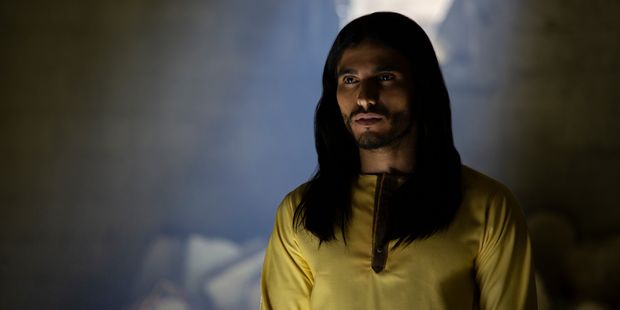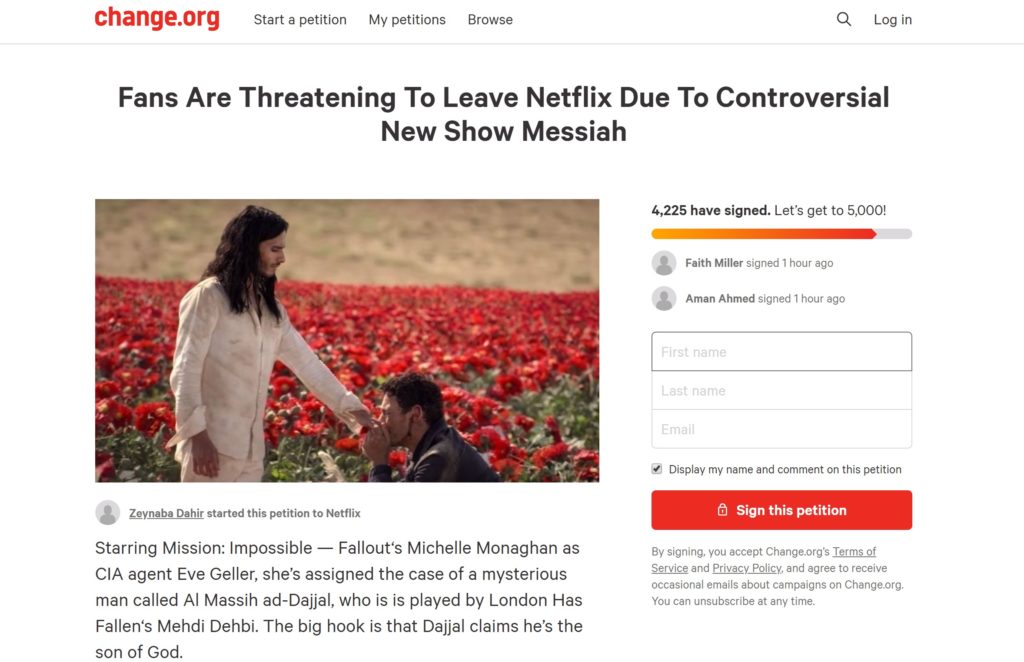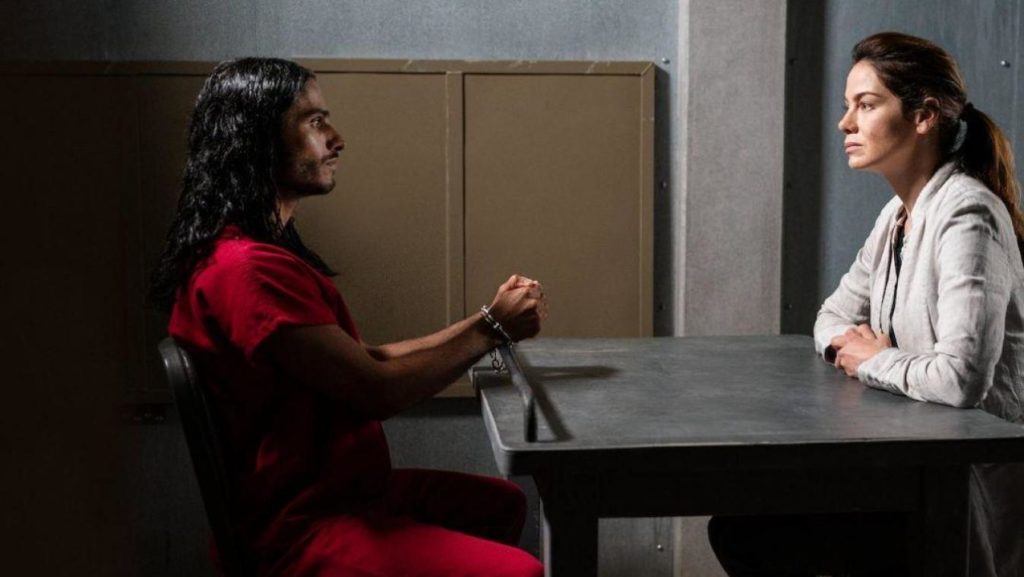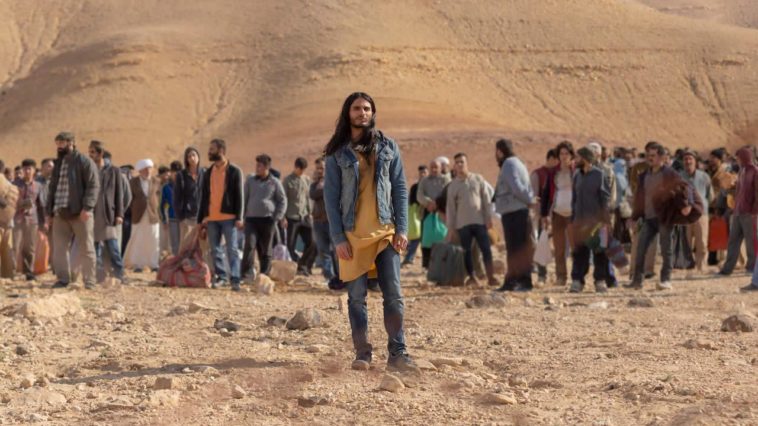A petition has already been launched on the internet to call for a boycott of “Messiah”, described by the initiators of the text as “anti-Islamic propaganda”.

A prophet defying the organization Islamic State in Syria, shooting on the Temple Mount in Jerusalem and perhaps the coming of the Messiah: Netflix could hardly have chosen more polemical themes for his new series “Messiah”, available on January 1st.
“Yes, it’s provocative, the series is provocative,” its creator, Michael Petroni, told AFP. “But provocative doesn’t mean offensive,” Petroni immediately added.
“Messiah” features a mysterious religious figure who suddenly appears in the Middle East and ends up being pursued around the world by the CIA. One way of imagining how the world would react to the emergence of such an individual spreading his message via social networks, between fake news, propaganda and continuous news feeds.
Is this strange character played by the Belgian actor Mehdi Dehbi the Messiah, an evil political agent or a manipulative con artist of genius? The question is precisely at the heart of the series. And Michael Petroni admits that Netflix was startled when he submitted his idea.
“It was a bold concept. If you read the ‘pilot’, this guy organizes the crossing of 2,000 Palestinians from Syria across the Israeli border on foot,” says the author.
Shooting the scenes of the “Messiah” on the spot was unthinkable. It was, therefore, necessary to build, at great expense, a life-size replica of part of the Temple Mount, including the Dome of the Rock where, according to Muslim tradition, Mohammed began his ascent to paradise.
Mr. Petroni maintains that his work “in no way seeks to shock anyone,” but he says he expects “a lot of noise around the series, and a lot of debate” .
A petition has already been launched on the Web to call for a boycott of “Messiah,” described by the initiators of the text as ” anti-Islamic propaganda.

The series, however, refrains from explicitly specifying which religion claims the mysterious leader, sometimes called “Al-Masih” (“the messiah” in Arabic) by some characters.
Michael Petroni himself refuses to talk about his religion. Two of the producers of the series, Mark Burnett and his wife Roma Downey, have produced a series devoted to the Bible and other programs designed to highlight the Christian faith.
For Michael Petroni, the action of his story necessarily had to take place in Jerusalem, the meeting point of the three great religions of the Book. “Obviously, historically speaking, the meeting does not take place quietly (…) But for a history devoted to politics and religion, it was very symbolic,” he explains.
Messiah” was filmed in Jordan and the United States, but the action alternated between the Middle East, Texas and Washington, which sometimes complicated the task of the actors and directors.
Michelle Monaghan (the films “Mission: Impossible” – Made of Honor) who plays a tenacious CIA official has to juggle with English, Hebrew, and Arabic, sometimes switching from one to the other in the middle of a dialogue.

The creators of the “Messiah” also had to keep an eye on the smallest detail to avoid the disappointments experienced by other series, such as “Homeland”, which had been ridiculed for the way it portrayed the Middle East and Muslims.
For example, Arabic-speaking viewers had been surprised to see graffiti proclaiming “Homeland is racist”, visibly drawn by a employee on the wall of a supposed refugee camp, reconstructed in a Berlin studio for the purposes of the series.
After the “Messiah” trailer aired, some people also sneered and pointed out that the term “al-Masih” is also sometimes used in Islamic theology to refer to a false evil prophet similar to the figure of the Antichrist, believing that he has uncovered the true nature of the character played by Mehdi Dehbi.
Netflix was quick to deny this and the details of the plot remained strictly confidential until it went online on January 1st.
Michael Petroni, an Australian whose father grew up in Egypt, doesn’t speak Arabic, nor do the directors, so they hired a whole team of translators and language specialists to shoot “Messiah”.
